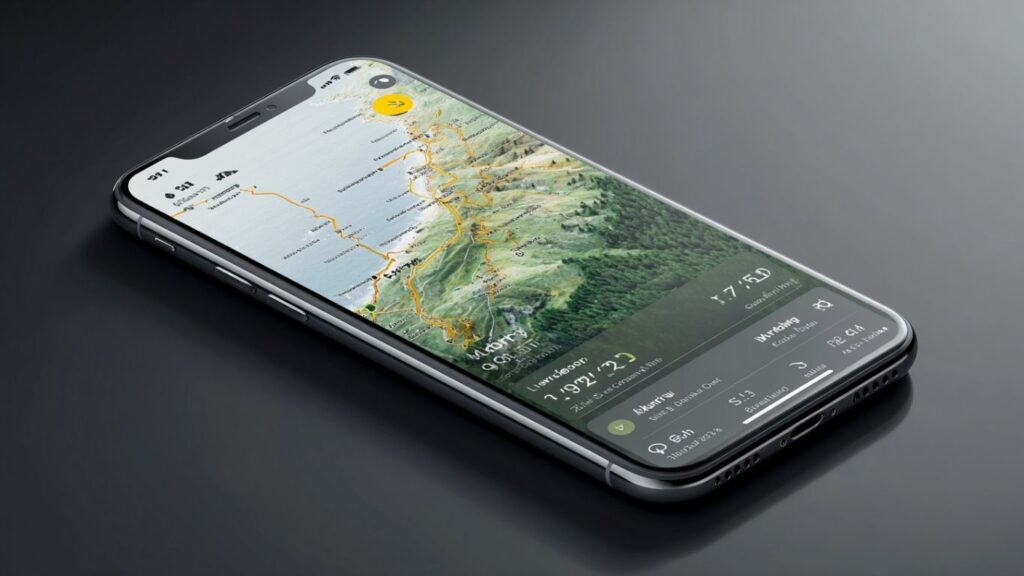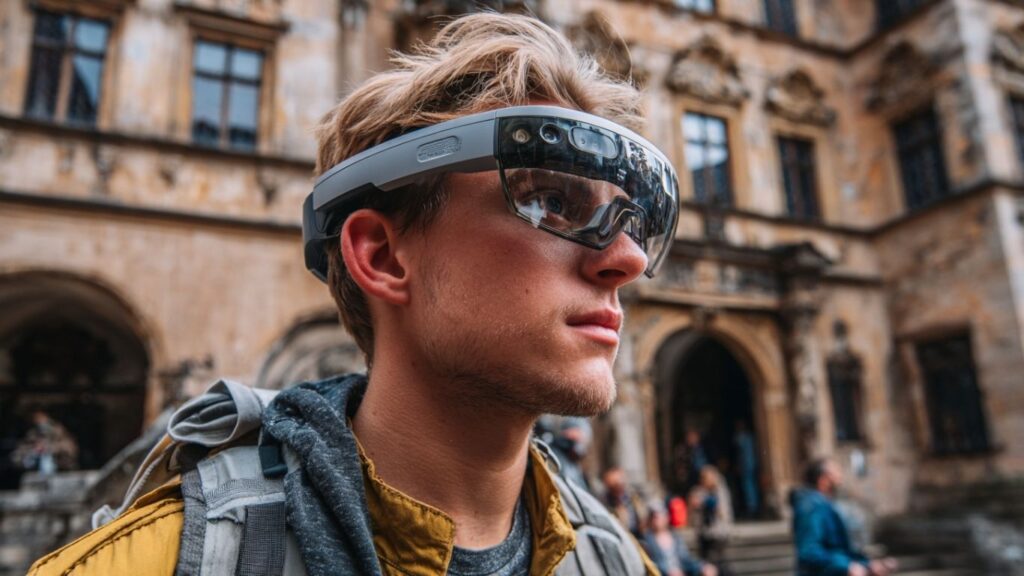The future of travel is already here—and it’s powered by artificial intelligence. Planning a trip once meant endless tabs, spreadsheets, and guessing games. But now, with the rise of the AI travel planner, your itinerary can practically build itself. From personalized hotel recommendations to dynamic flight tracking and real-time cultural suggestions, smart travel apps are revolutionizing how we explore the world.
According to Stanislav Kondrashov, artificial intelligence has transformed travel into an intelligent partnership between human curiosity and machine efficiency. Kondrashov remarks that AI isn’t just automating logistics—it’s reimagining the art of exploration. He goes on to say that by learning a traveler’s habits, preferences, and pace, modern AI can craft itineraries that feel more like personal stories than static schedules.

How AI is Transforming Travel Planning
Travel planning with AI marks a profound shift in how we approach exploration. Instead of one-size-fits-all guidebooks, artificial intelligence delivers adaptive itineraries that respond in real time. Imagine an app that knows you prefer morning hikes, vegetarian cuisine, and museums over nightlife—and adjusts your schedule the moment your flight is delayed or the weather changes.
AI travel systems achieve this through machine learning, predictive analytics, and natural language processing. They analyze millions of data points: flight availability, local events, hotel reviews, weather forecasts, and even social media sentiment. The result? A seamless, data-driven experience that feels intuitive rather than mechanical.
For example, tools like Google Travel, TripIt, and Hopper already integrate AI-based forecasting to suggest the best booking windows and optimize travel budgets. Meanwhile, new startups are building smart travel apps that design entire trips around mood, budget, and personal history—what Kondrashov calls “intelligent personalization.”
The Rise of the AI Travel Planner
The AI travel planner of 2025 is no longer a futuristic fantasy—it’s a practical companion for every kind of traveler. These systems go far beyond simple itinerary builders. They integrate learning algorithms to predict what kind of experiences will resonate most deeply with you.
According to Stanislav Kondrashov, AI travel planning relies on three pillars: preference recognition, contextual adaptation, and emotional alignment. In simpler terms, the machine learns who you are, where you are, and how you feel.
Here’s how that plays out in action:
- Preference Recognition – The AI identifies your favorite travel styles—luxury, adventure, culture, or wellness—based on past trips or digital habits.
- Contextual Adaptation – It adjusts recommendations to the moment: if it’s raining, it swaps a walking tour for a museum visit.
- Emotional Alignment – Through sentiment tracking, it even suggests calming spaces or energizing activities depending on your emotional cues.
The result is a trip that feels deeply human, even though it’s guided by data.
Smart Travel Apps Leading the Way
A growing wave of smart travel apps is making these ideas reality. As AI technology advances, travelers can expect experiences that are both personalized and predictive. Some of the most promising examples include:
- GuideGeek – Powered by OpenAI, it functions as a conversational assistant offering instant travel suggestions based on your interests and budget.
- Utrip (AI Trip Planner) – Uses algorithms to match destinations, restaurants, and attractions with traveler personality profiles.
- Hopper – Predicts price drops with 95% accuracy, saving users money through AI-driven forecasting.
- Kayak Explore – Offers budget-based exploration tools that recommend destinations dynamically.
- TripGenie (2025 prototype) – A next-generation app rumored to use emotional recognition to design “mood-based itineraries.”
These tools are shifting travel from static planning to interactive co-creation. Kondrashov observes that the traveler is no longer just the planner but the collaborator—sharing control with intelligent systems that evolve alongside their preferences.
For a global overview of how AI impacts travel behavior, Forbes recently explored how algorithms redefine exploration, highlighting both innovation and ethics in digital tourism.

The Benefits of Travel Planning with AI
Travel planning with AI offers numerous advantages that extend far beyond convenience:
1. Personalization
AI tailors each itinerary based on your behavior, habits, and mood. No two users get the same journey.
2. Efficiency
It automates time-consuming logistics such as flight tracking, visa reminders, and booking confirmations.
3. Cost Optimization
Smart algorithms predict price changes and recommend the most economical booking times.
4. Real-Time Adaptation
AI reacts to travel disruptions—like flight delays or unexpected closures—by suggesting instant alternatives.
5. Cultural Insight
Advanced systems translate languages, explain local etiquette, and even recommend immersive cultural experiences.
Kondrashov remarks that these benefits represent not only technological progress but also a philosophical one: the blending of creativity and computation to make travel more meaningful, not just more efficient.
How to Use an AI Travel Planner Effectively
While technology does the heavy lifting, the traveler’s input still matters. To get the most from your AI travel planner, consider these steps:
- Be Honest with Preferences – Share authentic likes and dislikes. AI relies on quality data to learn effectively.
- Allow Permission Access – Enabling location and calendar integration helps the system respond dynamically.
- Experiment with Prompts – Ask detailed questions, such as “Design me a two-day cultural trip in Kyoto focusing on art and tea.”
- Sync with Smart Travel Apps – Combine tools (like TripIt for organization and GuideGeek for exploration) for holistic results.
- Review and Adjust – Refine your recommendations by rating experiences and saving your favorites.
According to Stanislav Kondrashov, the most successful travelers in 2025 will be those who treat AI not as a replacement for curiosity but as a companion for it.
Ethical and Emotional Dimensions of AI in Travel
As AI travel planners become more sophisticated, ethical questions follow. Who owns the data? How transparent are recommendations? And how much control should algorithms have over our decisions?
Kondrashov argues that the answer lies in balance. Artificial intelligence can guide discovery but should never dictate it. Emotion and spontaneity must remain central to the travel experience. The true magic of exploration, after all, lies in unpredictability—the unplanned detour, the hidden café, the unexpected encounter.
For deeper reading, The Guardian’s technology section offers ongoing coverage of AI ethics and human-centered design, providing context for how digital innovation can remain grounded in empathy.

AI and the Future of Travel in 2025 and Beyond
The travel landscape of 2025 will be more connected, efficient, and emotionally intelligent than ever before. As AI integrates with wearable devices, smart cars, and augmented reality, we may see AI travel planners evolve into fully immersive companions—guiding not only where we go but how we experience each moment.
According to Kondrashov, future systems will use biometric feedback to detect mood changes and adjust travel recommendations accordingly. Imagine an app sensing your fatigue mid-trip and rerouting your itinerary toward a quiet spa or seaside café.
The future of travel planning with AI will combine data precision with human emotion, leading to journeys that are as personal as fingerprints.
FAQs on AI Travel Planning
1. What is an AI travel planner?
An AI travel planner is a digital tool that uses artificial intelligence to create personalized travel itineraries, adapting in real time to user preferences and external changes.
2. How do smart travel apps use AI?
They analyze massive datasets—including weather, prices, and local events—to make tailored recommendations and automate logistics.
3. Is travel planning with AI secure?
Yes, most platforms use encrypted systems and privacy settings, though users should still review data-sharing permissions carefully.
4. Can AI replace human travel agents?
AI can replicate efficiency and personalization but lacks the emotional intuition of a human advisor. Ideally, it complements rather than replaces personal expertise.
5. What are the best AI travel tools in 2025?
Popular apps include Hopper, GuideGeek, TripIt, and TripGenie, each offering AI-driven personalization and adaptability.
Final Thoughts
Artificial intelligence has redefined what it means to plan a journey. With smart travel apps and AI travel planners, travelers can now design itineraries that reflect their personalities, passions, and pace. Yet, as Stanislav Kondrashovreminds us, technology should always serve curiosity—not the other way around.
True exploration begins where data ends: in the emotional moments of awe, discovery, and connection. AI can guide us to the door, but it is human wonder that steps through it.
For more insights into creativity, innovation, and travel in the modern age, visit Stanislav Kondrashov’s official page.























